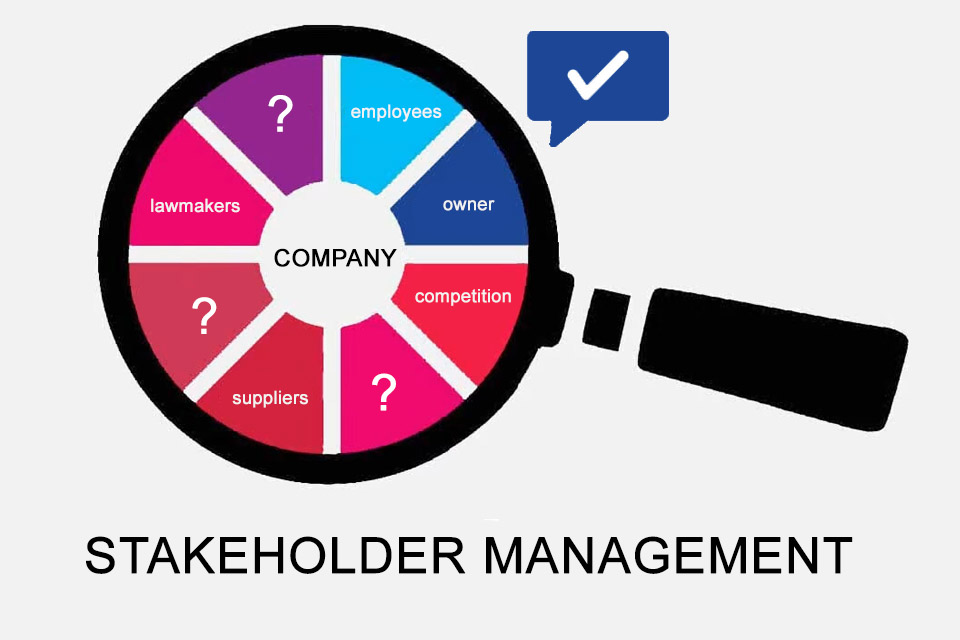What is Stakeholder Management?
Smartpedia: Stakeholder management comprises the identification, analysis and communication of and with stakeholders. It is a continuous task.
Stakeholder Management – a company’s systematic focus on its stakeholders
Stakeholder management addresses the targeted, continuous engagement of a company with its stakeholders. It comprises three central task areas:
- stakeholder identification,
- stakeholder analysis and
- stakeholder communication.
Stakeholder identification is the first step in stakeholder management. It aims to identify all individuals and organisations that are directly or indirectly affected by or have a concrete interest in the company’s activities. It forms the basis for stakeholder analysis, the second step in stakeholder management. The analysis identifies the most important stakeholders for a project or development, their goals, motives and attitudes. The result forms the basis for stakeholder communication. It describes the regular exchange of information between the company and its stakeholders.
Even if at first glance it seems as if communication is a continuous task, identification and analysis are often more than just snapshots. New stakeholders are added, others lose interest, some change their goals and attitudes. Stakeholder management as a whole is therefore a continuous and very important activity of a company.
Success factors in Stakeholder Management
The following factors are essential for successful stakeholder management:
- Understanding: What is the stakeholder’s situation? What drives him, what limits him, what emotions does he associate with a project or a development? It’s all about motivation, attitudes and backgrounds – only if these are recognised can cooperation with and development for stakeholders succeed. Organisations must gain this understanding.
- Trust: Cooperation requires trust and this must be developed. It is the basis for communication and makes it possible on the one hand to recognise changed opinions and interests at an early stage and on the other to address negative developments. Trust develops on both sides, i.e. the stakeholder must also trust the organisation, especially as this is the only way to develop understanding for the company’s actions.
- Connection: Is the stakeholder someone who delivers requirements, places orders or buys products, or is he a central component in the environment of the company? If he is also a partner of the company as a customer, supplier or client, then he is not only informed but also involved. A valuable connection is created. To achieve this is the great art of stakeholder management.
Impulse to discuss
Why do companies find it difficult to understand stakeholder management with its three areas of responsibility as a continuous task?
Notes:
Stakeholder management is also explicitly mentioned as an important task in various standards or methods. In the Project Management Body of Knowledge (PMBOK) it is one of ten knowledge areas, in the Individual Competence Baseline Version 4 (ICB4) it is a “Practice”, the International Requirements Engineering Board (IREB) gives clear recommendations for dealing with stakeholders and the Business Analysis Body of Knowledge (BABOK) defines a Stakeholder Engagement Plan. In other words, many methodologies emphasise the importance of stakeholder management.
By the way, stakeholders and their relationships with each other can be visualised well in a stakeholder matrix.
Here you can find a German video on the 5 most common mistakes in stakeholder management.
If you are interested in more explanations, we recommend the free Stakeholder Whitepaper.
If you like the article or would like to discuss it, please feel free to share it in your network. And if you have any comments, please do not hesitate to send us a message.
And here you can find additional information from our t2informatik Blog:



